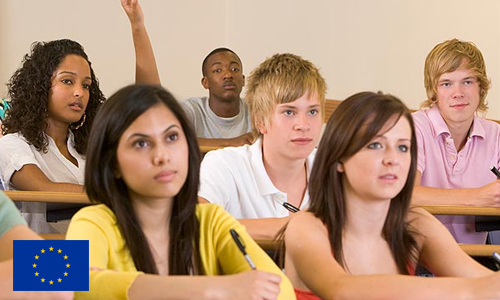Recently the EU Home Affairs and Justice Ministers had agreed on the common entry and residence regulation aiming to make the EU more attractive for the researchers and students from third nations.
The agreement now needs to be voted by plenary session of the European Parliament which is likely to happen this year.
The aim is to advance the EU in the universal competition for the talent and to promote Europe as the global centre of excellence for education and training; High skilled individuals form the important asset for the EU in intensifying its competitiveness, enhancing development and job creations.
The new decree would cover the rights, admittance circumstances and intra-EU mobility of the concerned groups. The latest rules would also make it easy for retaining these talented individuals and their skills in the economy of the EU. Researchers and the students would be able to reside for nine months after the completion of their graduation or their research projects to look for the work or setting up the business in Europe.
As per the European Commission, the changed rules are a key part of attempts of EU in creating a system for lawful migration across the EU. Based on the 2014 statistics, the latest rules would impact a quarter of million researchers and students.
The amendments being introduced are providing better access to the employment market, easy access for the family of researchers and ending the limitations on applying when already in the EU and easing the movement between different EU states.
Family members of the researchers are permitted to accompany the researchers, and are permitted to take an employment, This is a vital element in luring and holding the researchers with high skills from outside the EU. Researchers and their members of family would be able to spend around 180 days in other member state based on easy intra-EU mobility regulations. Also, the students who participate in the programs would be able to move with ease within the EU to carry out their education part in various member state.
Students would have the right to work for a minimum of 15 hours per week outside of their time of the study. Students and researchers would got to stay minimum 9 months after completing their research or studies to look for work or setting up the business that should also make sure that the Europe gains from their skills.
It would be easy for the researchers and students to travel within the EU during their stay. Under this new regulation, they should notify only to the member state to which they are travelling. The Europe 2020 Strategy and its initiative of Innovation Union flagship set the goal of rising investment in innovation and research, needing a predictable additional one million more research employments in the Europe.
It is believed that permitting the third nation citizens to obtain the knowledge and skills through the training period in Europe would motivate and help cooperation with the third nations, which gains both the sending and receiving nations.

